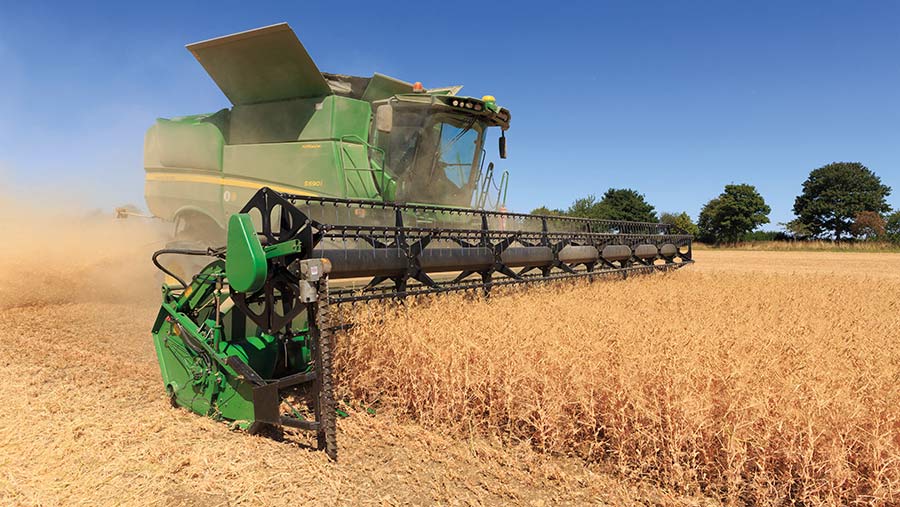Business Clinic: Should we collaborate more with neighbours?
 © Tim Scrivener
© Tim Scrivener Whether it’s a legal, tax, insurance, management or land issue, Farmers Weekly’s Business Clinic experts can help.
Tom Hind, senior rural surveyor with Carter Jonas, sets out the considerations for the start of a farmer collaboration.
Q: Two years ago, we were caught short of labour during harvest and a neighbour, who used to have the same combine as us, offered to drive ours if we paid for his time.
He helped us again this year with his own combine when ours broke down. He has asked if we would consider a formal agreement for him and his daughter to work more of our land.
I am unsure about this – what should I consider?
See also: Business Clinic: how much should I charge for store cattle summer grazing?
A: This is something that I have spoken to a few clients about and that has also been discussed on our family farm.
The first piece of advice when looking at any form of collaboration with a neighbour is to start small and build up.
The main reason for this is not that I have seen many instances of collaboration going wrong, but that trust is incredibly important.
Even if you already know your neighbour, you’re unlikely to trust them implicitly from the outset if the stakes are high.
Try a job-by-job basis first
To a certain extent, by working with him during previous harvests, you have already done this, which puts you in a good position.
You could agree with your neighbour that for the next 12 months you work on a job-to-job basis and see where they can help.
They could start with some cultivations and, if that goes well, see if they could help with harvest again.
I would look closely at how you could benefit from the arrangement beyond reducing your labour requirement at peak times.
If your neighbour farms a larger area than you, it’s quite possible that there could be a lot to gain from closer collaboration with him and his daughter.
For example, they might have newer and more high-tech machinery, with the expertise to apply this to your benefit.
This will also mean, as you work together more, you will have to trust their expertise more.
One of my clients, who farms about 200 acres, works with a neighbour who has a variable-rate drill and fertiliser spreader, which is a great example of accessing beneficial technology that just isn’t viable across his 200 acres in isolation.
Another thing to consider is what you will do if you are not farming.
If your business is diversified, or has clearly distinguishable enterprises – for example, livestock and arable – then it could free up your time to focus on a particular aspect of the business, which may be beneficial longer term.
If not, then you need to make sure you are comfortable taking a step back from some of the physical work.
Communication is key
There are advantages to a more formal, longer-term arrangement, but I don’t think it’s necessary to rush into that if you start small and communicate well.
By continuing to pay your neighbour by the hour or job, you will keep ultimate control of the business and potentially improve its efficiency – just be mindful of the contractor’s fees.
Every contractor will have a rank of priority. If it is just you and a neighbour, it is likely their own crop will come first.
If you are one of many farmers working with a larger contractor, the demands of a formal contract farming agreement – where the contractor is incentivised to do well by offering a share of profit – may supersede those of a job-by job client.
Do you have a question for the panel?
Outline your legal, tax, finance, insurance or farm management question in no more than 350 words and Farmers Weekly will put it to a member of the panel. Please give as much information as possible.
Email your question to FW-Businessclinic@markallengroup.com using the subject line “Business Clinic”.
